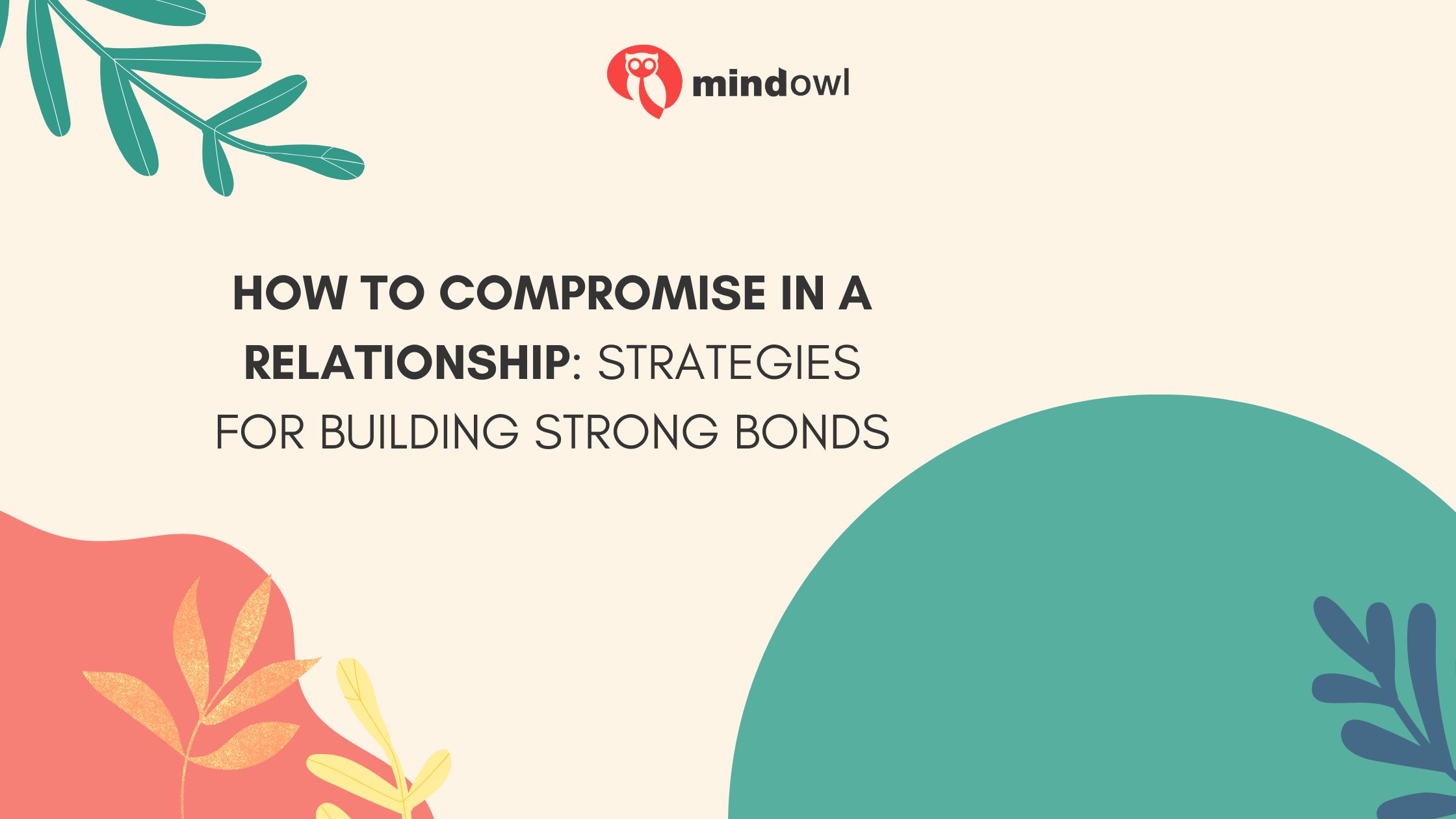
Compromise is an essential component of any successful relationship. It is the ability to find a middle ground and make sacrifices for the greater good of the partnership. Whether it’s deciding on weekend plans, dividing household chores, or managing finances, being able to compromise is crucial for maintaining harmony and understanding in a relationship.
In this article, we will explore the art of compromising in a relationship and discuss the importance of making concessions for the overall well-being of the partnership. We will also provide practical tips and strategies for fostering a more compromising mindset and creating a more harmonious and fulfilling relationship. Read on to find that sweet spot where love meets understanding.
Key Takeaways
- Compromise in relationships means respecting each other’s needs and finding middle ground, which strengthens the bond between partners.
- Honest communication, making fair deals that satisfy both parties, and considering each other’s feelings are key to successful compromising.
- Differences such as fights, money habits, travel preferences, sexual desires, and personal likes require compromise for a healthy relationship.
- Employ patience, be open-minded and respectful; aim for win-win solutions that respect both individuals’ non-negotiables.
- Regularly practicing these strategies helps couples avoid conflicts and build a lasting connection together.
What is Compromise in Relationships?

Compromise in relationships involves making sacrifices and concessions to reach a mutual agreement, showing respect for each other’s needs and desires. It is an essential part of maintaining a healthy and successful relationship.
Definition of compromise
Compromise means making changes to get along better with someone else. It happens when two people in a relationship respect each other’s needs and feelings. They figure out how to meet in the middle without losing what they believe in.
Each person might give up something so that both can be happy together.
In relationships, compromise is about balancing your wishes with those of your friend or partner. It strengthens bonds by letting couples work through differences. This way, everyone feels heard and valued while keeping their own values intact.
Importance of compromise in relationships
Understanding what compromise means sets the stage for its crucial role in relationships. It’s about giving and taking to reach an agreement that considers both partners’ wants and needs.
Healthy compromise shows you respect your partner’s feelings and desires. This practice builds a strong foundation for a lasting relationship where everyone feels valued.
Healthy relationships thrive on balance, which often comes from couples finding common ground. When you love someone, understanding their perspective is key to coexisting happily. Flexibility in decision-making signals that internal happiness matters just as much as shared goals.
Love ties closely with the willingness to meet halfway, showing care for each other’s well-being by nurturing an emotional connection through mutual sacrifices.
Situations Where Compromise is Necessary

Compromise is necessary in various situations within a relationship, including disagreements, financial decisions, travel plans, sexual preferences, and personal choices. Learning how to navigate these scenarios can strengthen the bond between partners.
Fights
Fights aren’t all bad in a relationship. They can actually make the bond stronger if handled well. When you disagree with your partner, it shows that there are things to work out together.
This means talking and understanding each other’s viewpoints. Healthy fighting lets you air issues without hurting feelings.
You must approach conflicts constructively. Keep clear of shouting or being mean. Listen to what your partner is saying and explain how you feel too. Through this give and take, find a solution that works for both of you.
Next up, let’s talk about finances and how compromise plays into managing money as a couple.
Finances
Moving from disagreements, let’s tackle money matters. Balancing the books together can be tricky, but it’s crucial for a healthy partnership. Understanding and respecting each other’s financial views smoothes out many bumps on the road to marital bliss.
Nearly three in four couples feel tension when deciding on their finances. It shows that money talks are often tough but essential.
Talk openly about your spending habits and savings goals. If one loves to save and the other enjoys splurging, find common ground that satisfies both needs. A budget that factors in fun can help avoid fights over cash later on.
Couples who work as a team on their finances tend not only to get along better but also build lasting unions based on mutual support and understanding of personal needs.
Travel
Travel can spark the need to compromise in a relationship. Maybe one partner loves adventure while the other prefers relaxation. Talk things out and plan trips that include both elements.
A beach holiday with water sports might satisfy you both. Make sure each person gets a say in activities, accommodation, and destinations.
Compromising on travel doesn’t mean giving up your dreams. It’s about finding ways to enjoy experiences together. You could alternate picking where to go next or mix days of sightseeing with days of rest during the trip.
This approach helps maintain a healthy balance between individual desires and shared adventures as a couple.
Sex
Moving from discussing travel to the topic of sex, it’s clear that understanding in bedroom matters is as important as agreeing on a holiday destination. In relationships, sex often requires its own share of compromise to keep both partners happy.
One person may have a higher desire than the other, and this can lead to frustration if not addressed with care. Compromises here can boost sexual satisfaction and show respect for each partner’s needs.
Navigating these sensitive waters demands open communication about what each person enjoys and what they might want to explore or avoid. It’s key that neither partner feels pressured or ignored.
Power dynamics should stay balanced to ensure both feel equally valued. Finding common ground sexually strengthens your bond and ensures intimacy thrives without anyone feeling they’ve given up too much for the sake of their relationship.
Personal preferences
Everyone has their own likes and dislikes. These personal preferences can differ a lot in relationships. Maybe you love Thai food, but your partner prefers Italian. Or perhaps you enjoy quiet weekends at home while they thrive on adventures with friends.
It’s about giving each other space to enjoy individual passions without feeling guilty or neglected.
Finding a compromise here means respecting personal choices and sometimes joining in or making concessions for the sake of harmony. Couples might take turns picking movies or choosing holiday destinations that both will enjoy.
By doing this, partners feel heard and valued which helps grow a stronger bond between them.
Moving forward from personal preferences, understanding family dynamics is also crucial for relationship harmony.
Family
When it comes to building strong family bonds, compromise is a foundational element. Strong families are built on love, security, communication, and connection. The ability to find common ground through mutual compromise and respect within the family is crucial for maintaining positive relationships.
Conflict can often arise from different views or beliefs within families, and peaceful resolution depends on negotiation and respect for each other. Attachment theory suggests that at least one caregiver providing a secure base is essential for individuals to develop the ability to compromise and build strong relationships.
Mutual compromise requires warmth, care, good communication skills, predictability, and strong connections with others outside the family. Recognising individual needs while accommodating those of others paves the way for successful compromises in a familial setting.
How to Compromise in a Relationship
Communicate openly and honestly with your partner, make fair deals that accommodate both of your needs, and listen to each other’s perspectives. Stick to your decisions, but be willing to find a middle ground that satisfies both parties.
Communicate with your partner
Open and honest communication is crucial for maintaining a healthy relationship. Share your thoughts and feelings openly with your partner to avoid misunderstandings or resentment.
Actively listen to your partner’s perspective and be respectful of their views, ensuring that both partners feel heard and understood. Effective communication can help find mutually agreeable solutions, strengthening the bond between you two.
Strive to communicate with empathy and understanding, which will facilitate finding compromises that cater to both partners’ needs. This not only allows for open dialogue but also fosters mutual respect in the relationship, ultimately leading towards building a strong and lasting connection between partners.
Make fair deals
In making fair deals, both partners should express their needs and desires openly. This involves discussing what each person wants and coming to a mutual agreement that considers the well-being of both individuals.
By being transparent about expectations and working together to find compromises that satisfy both parties, couples can create a stronger foundation for their relationship.
Through fair dealing, it’s essential to consider the bigger picture while respecting each other’s boundaries. This process fosters understanding and prevents one partner from feeling neglected or taken advantage of in the relationship.
Prepare a “no compromise” clause
When setting up a “no compromise” clause, each individual in the relationship can identify certain non-negotiable aspects that are fundamental to their well-being. Considering this, it is crucial for mutual understanding and respect of these boundaries to be established.
A “no compromise” clause aids in clarifying essential needs and limits within the relationship, serving as a foundation for open communication and conflict resolution. This proactive approach helps prevent unnecessary tensions by clearly outlining areas where flexibility is not an option.
Implementing a “no compromise” clause should involve thoughtful and respectful discussions between partners. It ensures that both individuals feel heard and validated in expressing their core values while fostering an environment of genuine acceptance within the relationship.
Learn to listen to each other
Effective communication in a relationship requires active listening to your partner’s perspective. This involves giving them your full attention, being empathetic and understanding their emotions.
Acknowledging their feelings validates their experience and fosters a deeper connection between you both.
Listening is not just about hearing words but also about understanding the underlying meaning and emotions behind them. When you truly listen to each other, it promotes trust, respect, and mutual understanding in the relationship, ultimately strengthening the bond between partners.
Stick to your decision
Sticking to the decisions made in a compromise is vital for building a strong bond in a relationship. By honoring and respecting the agreements reached, both partners demonstrate reliability and trustworthiness, creating a foundation of security within the relationship.
It also allows each partner to feel valued and respected, fostering an environment where both individuals can thrive emotionally and mentally. Unwavering commitment to compromises reinforces accountability and integrity, contributing to the longevity and strength of the bond between partners.
Consistency in upholding agreed-upon compromises is essential for nurturing healthy relationships. It promotes cohesion, understanding, and emotional security within the partnership while fortifying mutual respect.
Consider each other’s feelings
Consider your partner’s feelings and needs throughout the compromise process, ensuring that both of you feel heard and understood. Acknowledge the emotions involved and strive to find a solution that respects each other’s perspectives.
By recognising the importance of emotional validation, you can create an atmosphere of understanding and empathy, strengthening the bond within your relationship.
Strategies for Successful Compromising
Be patient, be open-minded, be respectful, find the middle ground, and find win-win solutions to strengthen your relationship through compromise. To learn more about how these strategies can help you build a strong bond with your partner, keep reading!
Be patient
Patience is crucial in navigating the complexities of compromise within a relationship. Understanding that building stronger bonds and resolving conflicts takes time is essential. It’s important to recognise that patience is key in balancing individual needs, managing emotions, and embracing different perspectives in a relationship.
Recognising this can help couples work towards finding common ground while respecting each other’s feelings and desires.
Finding win-win solutions requires patience in communication and conflict resolution. Patience fosters understanding and empathy, paving the way for healthy compromises where both partners feel heard and valued.
Be open-minded
To effectively compromise in a relationship, it’s crucial to be open-minded. This means being willing to consider your partner’s perspective and approach conversations with a respectful and curious attitude.
Open-mindedness allows both partners to explore various solutions and find common ground, strengthening the bond between them. It also fosters an environment where each person feels heard and valued, leading to more successful compromises.
Remember, being open-minded doesn’t mean giving up your own values or beliefs; rather, it involves embracing flexibility and understanding that both individuals bring unique viewpoints to the table.
By practising open-mindedness, couples can navigate conflicts with empathy and creativity, ultimately building stronger relationships based on mutual respect and understanding.
Be respectful
To effectively build strong bonds in a relationship, it is essential to be open-minded and willing to consider your partner’s perspective. This also requires showing respect for each other’s feelings and opinions.
Respect forms the foundation for healthy compromise, creating an environment where both partners feel valued and heard. Acknowledging each other’s needs and wants with respect can lead to constructive communication and effective problem-solving.
It fosters an atmosphere of mutual trust, nurturing the relationship for long-term success.
In any successful compromise, respecting one another paves the way for understanding different viewpoints while working towards a solution that satisfies both partners’ needs and desires.
Respect plays a crucial role in maintaining harmony within relationships by preventing misunderstandings from escalating into conflicts. This creates a safe space where issues can be addressed openly without fear of judgment or disrespect.
Find the middle ground
Compromising and finding the middle ground in a relationship involves considering both partners’ needs and desires. This process requires open communication, active listening, and a willingness to understand each other’s perspectives.
By embracing mutual respect and empathy, couples can work towards solutions that honor their individual preferences while also maintaining harmony within the relationship.
In reaching the middle ground, it’s crucial to acknowledge that compromise is not about sacrificing one’s own happiness entirely for the sake of the other person. Instead, it’s about finding common areas where both parties are willing to make adjustments.
Find win-win solutions
To find win-win solutions, it’s crucial to embrace principled negotiation methods such as those developed by Roger Fisher and William Ury. This approach enables individuals to engage in civil negotiations, striving to achieve outcomes that benefit all parties involved.
When conflict arises in relationships, both partners should remain open to change and motivated to seek resolutions that meet the needs of everyone. By understanding and accepting each other’s perspectives, couples can work towards comfortable coexistence and the ability to find mutually beneficial solutions in their relationship.
Understanding these approaches is essential when navigating through issues related to fights, finances, travel decisions or personal preferences within a romantic relationship. It provides a framework for finding common ground on areas like quality time spent together without feeling dissatisfied or hurt while maintaining individual values and beliefs.
Conclusion
In conclusion, compromising in a relationship is vital for building strong bonds. Partners should communicate, make fair deals, and consider each other’s feelings. Being patient, open-minded, and respectful can help find win-win solutions.
By actively practicing compromise, couples can strengthen their relationship and avoid unnecessary conflicts.
FAQs
1. What does it mean to compromise in a relationship?
To compromise in a relationship means both partners give up something for the sake of their bond. It’s important because it helps manage conflict and builds strong relationships.
2. Why is finding a compromise vital when we’re married or living together?
When you live with someone or are married, you are bound to have differences. Finding compromises helps ensure that both feel loved and respected while pursuing mutual goals.
3. How can I make concessions without feeling like I’m always giving up what I want?
You must understand that small things require compromises to avoid hurt feelings and strengthen your connection with your partner. Make sure not to always give in so you don’t feel taken advantage of.
4. Can spending quality time together help my partner and me find common ground?
Absolutely! Spending free time with each other allows both partners to brainstorm solutions and find a compromise on issues where they might clash.
5. Should personal values be part of the compromises we make for our relationship?
Your core personal values should remain intact since compromising them can cause resentment or dissatisfaction, which could be a red flag for relational health.
6. What if my partner may not recognise the need for us to make decisions together?
If your partner struggles to meet halfway, suggest seeing a therapist who can help guide towards strategies that facilitate better decision-making as a couple.
MindOwl Founder – My own struggles in life have led me to this path of understanding the human condition. I graduated with a bachelor’s degree in philosophy before completing a master’s degree in psychology at Regent’s University London. I then completed a postgraduate diploma in philosophical counselling before being trained in ACT (Acceptance and commitment therapy).
I’ve spent the last eight years studying the encounter of meditative practices with modern psychology.

